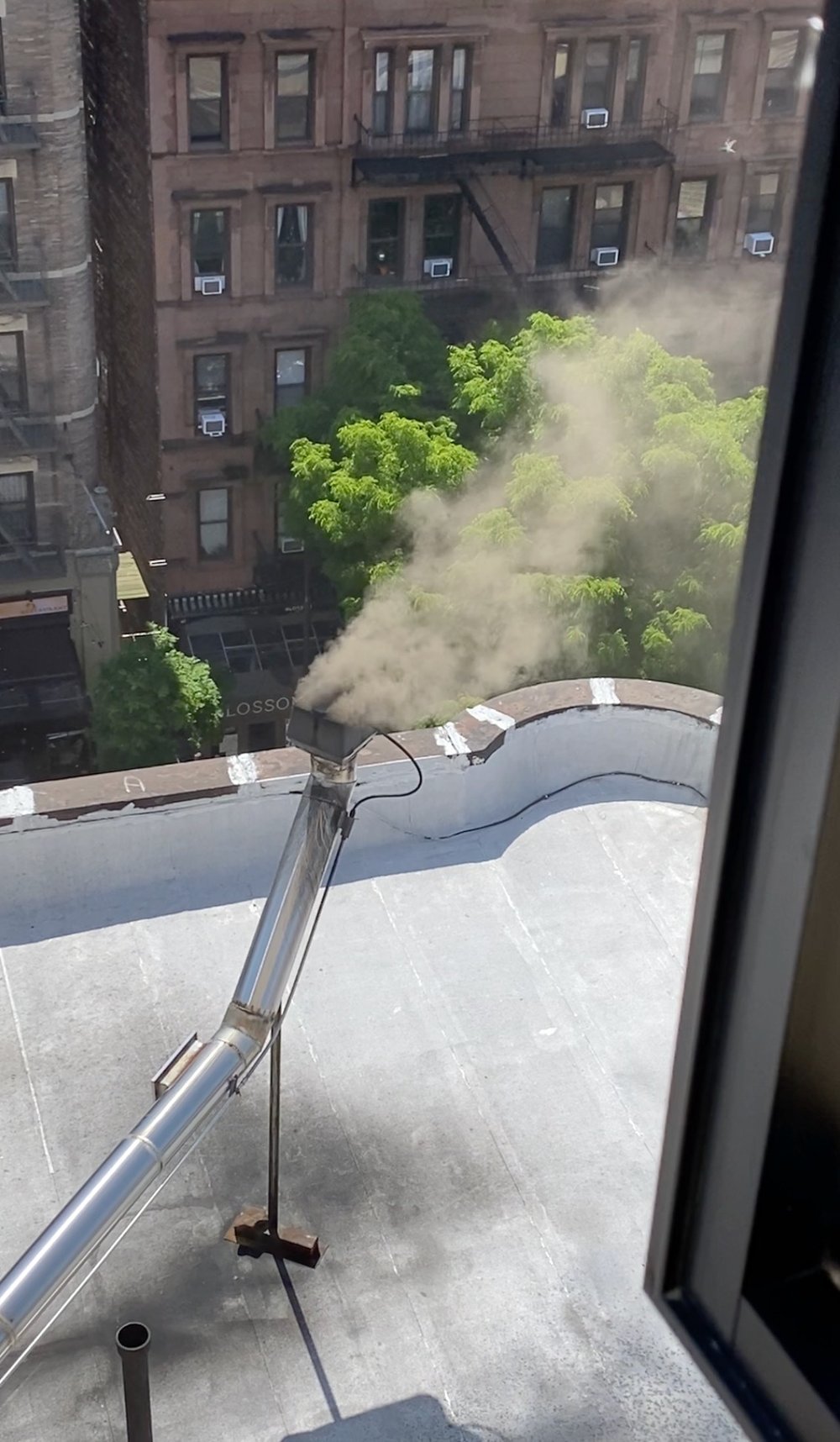Upper West Sider says smoke from wood-fired pizza joint makes life 'Dickensian'
Oct. 13, 2024, 9:22 a.m.
The owner of Motorino Pizzeria says the business is in compliance with new rules limiting emissions. But complaints keep coming.

Every New Yorker loves an old-fashioned Neapolitan-style pizza – until they live next door to a wood-burning oven.
Neighbors of the popular Motorino Pizzeria on Columbus Avenue on the Upper West Side say they haven’t been able to crack open their windows since the wood-fired pie joint opened about seven years ago. Black soot from the restaurant’s exhaust accumulates on the facade, blackens windows and wafts into homes. Pizzeria owner Mathieu Palombino said the eatery has installed a pollution control system from wood-burning kitchen equipment company Smoki USA that complies with new city emissions rules. The new regulations forced wood and coal-fired pizza joints to make pricey climate-friendly upgrades – but residents say the smoke remains a scourge.
“It is like living inside a Dickensian chimney,” said Chantal Berman, who lives in the building next to Motorino with her 1-year-old child. “The thickness and the oiliness of the soot and the smell that comes out of this chimney is like nothing I've ever experienced.”
Since 2017, Motorino's next-door neighbors have sent cease-and-desist letters to the pizzeria's owners, petitioned City Hall, and complained to 311, local City Councilmember Gale Brewer and Community Board 7. Some of the apartments are roughly 20 feet away from Motorino’s chimney.

Berman and her neighbors said they rush to close their windows before Motorino opens every day at 11:30 a.m. When Berman forgets to close the windows on time, she and her child start coughing from the smoke, she said.
Palombino said his business is compliant with the emissions rules that went into effect in April. According to the Smoki filter system's product specifications, the device reduces particulate matter by up to 97% by cooling down hot, dark smoke and turning it into water vapor.
“We’ve had the scrubber in our Upper West Side chimney since we opened in 2016 and it’s running 24/7,” Palombino said. He added that he is in the process of switching to natural gas. According to his email correspondence with residents, Palombino began this process in spring 2021.
Burning wood creates two-and-a-half times as much pollution as natural gas. Burning coal produces roughly double the emissions of natural gas.
Research shows that commercial kitchens are a big source of pollution such as carbon dioxide, nitrogen oxides and black carbons. Areas immediately located around restaurants have higher concentrations of pollutants. The regulations that went into effect last spring are meant to address this localized pollution.
The new rules made national headlines as some critics lamented that the city was over-regulating its most beloved food: pizza.
Several complaints on the Department of Buildings website regarding smoke from Motorino and another restaurant in the building were deemed unfounded by an inspector. Those inspections occurred before the new emissions regulations went into effect. A Department of Environmental Protection spokesperson confirmed an inspector issued a violation in June of the air code to the business, which was attributed to possible failure to maintain the filtration system.
Public records show the fine was $1,600. Follow up inspections in recent weeks found the eatery was in compliance with the rules. But some neighbors are still smelling smoke.
“I have had to replace two sofas and three rugs due to soot contamination, as well as all of my windowsills,” said Heather Harrison, a co-op board member of a nearby building on West 85th Street. “This year I decided I cannot open my windows, except for early mornings – the pollution is just too great.”
New regulation aims to take a slice out of NYC pizza pollution